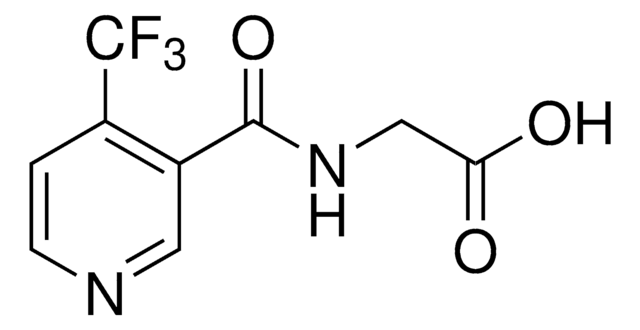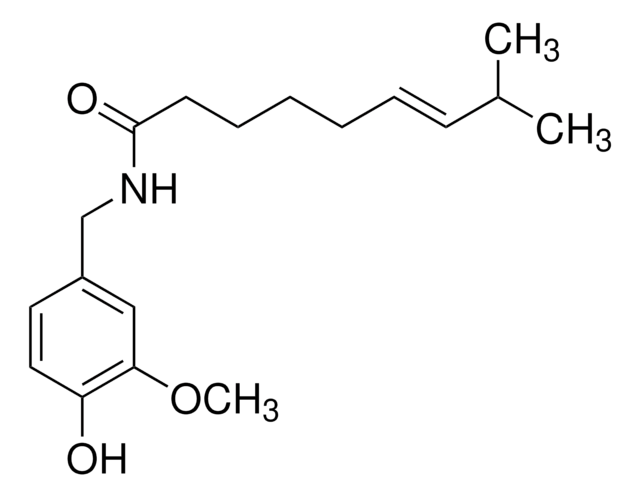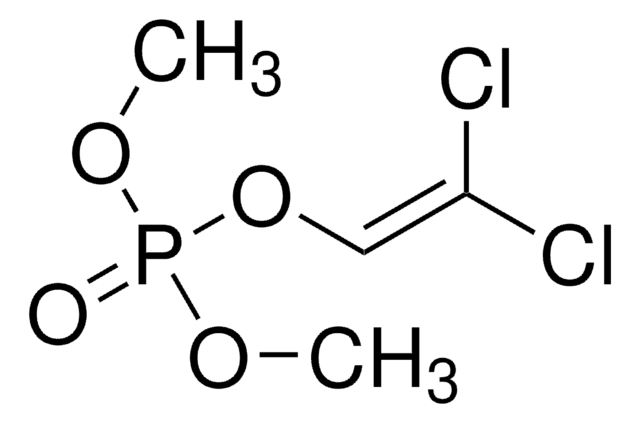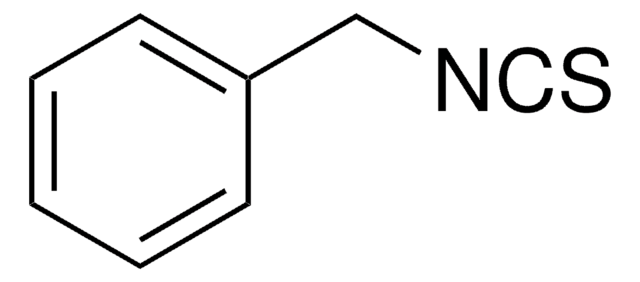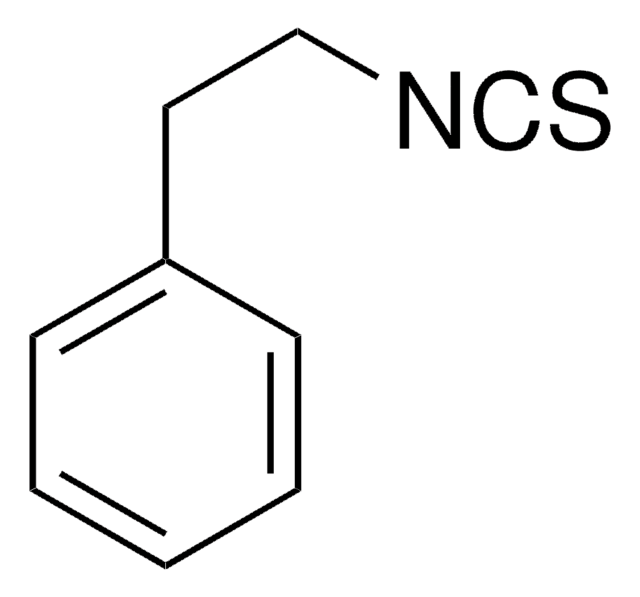36682
Allyl isothiocyanate
PESTANAL®, analytical standard
Sinónimos:
AITC, Oil of mustard
About This Item
Productos recomendados
grado
analytical standard
Nivel de calidad
Línea del producto
PESTANAL®
Análisis
99.7% (GC)
caducidad
limited shelf life, expiry date on the label
técnicas
HPLC: suitable
gas chromatography (GC): suitable
índice de refracción
n20/D 1.529 (lit.)
bp
150 °C (lit.)
mp
−80 °C (lit.)
densidad
1.013 g/mL at 25 °C (lit.)
aplicaciones
agriculture
cleaning products
cosmetics
environmental
flavors and fragrances
food and beverages
personal care
formato
neat
cadena SMILES
C=CCN=C=S
InChI
1S/C4H5NS/c1-2-3-5-4-6/h2H,1,3H2
Clave InChI
ZOJBYZNEUISWFT-UHFFFAOYSA-N
¿Está buscando productos similares? Visita Guía de comparación de productos
Descripción general
Aplicación
Acciones bioquímicas o fisiológicas
Envase
Información legal
Palabra de señalización
Danger
Frases de peligro
Consejos de prudencia
Clasificaciones de peligro
Acute Tox. 2 Dermal - Acute Tox. 2 Inhalation - Acute Tox. 4 Oral - Aquatic Acute 1 - Aquatic Chronic 1 - Eye Dam. 1 - Flam. Liq. 3 - Skin Corr. 1B - Skin Sens. 1
Código de clase de almacenamiento
3 - Flammable liquids
Clase de riesgo para el agua (WGK)
WGK 3
Punto de inflamabilidad (°F)
113.0 °F - closed cup
Punto de inflamabilidad (°C)
45 °C - closed cup
Elija entre una de las versiones más recientes:
¿Ya tiene este producto?
Encuentre la documentación para los productos que ha comprado recientemente en la Biblioteca de documentos.
Nuestro equipo de científicos tiene experiencia en todas las áreas de investigación: Ciencias de la vida, Ciencia de los materiales, Síntesis química, Cromatografía, Analítica y muchas otras.
Póngase en contacto con el Servicio técnico
